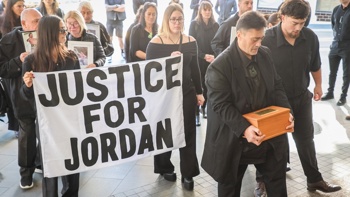The CIA Book Club by Charlie English
For almost five decades after the Second World War, Europe was divided by the longest and most heavily guarded border on earth. The Iron Curtain, a near-impenetrable barrier of wire and wall, tank traps, minefields, watchtowers and men with dogs, stretched for 4,300 miles from the Arctic to the Black Sea. No physical combat would take place along this frontier: the risk of nuclear annihilation was too high for that. Instead, the conflict would be fought in the psychological sphere. It was a battle for hearts, minds and intellects.
No one understood this more clearly than George Minden, the head of a covert intelligence operation known as the ‘CIA books programme’, which aimed to win the Cold War with literature.
From its Manhattan headquarters, Minden’s global CIA ‘book club’ would infiltrate millions of banned titles into the Eastern Bloc, written by a vast and eclectic list of authors, including Hannah Arendt and Aleksandr Solzhenitsyn, George Orwell and Agatha Christie. Volumes were smuggled on trucks and aboard yachts, dropped from balloons, and hidden in the luggage of hundreds of thousands of individual travellers. Once inside Soviet bloc, each book would circulate secretly among dozens of like-minded readers, quietly turning them into dissidents. Latterly, underground print shops began to reproduce the books, too. By the late 1980s, illicit literature in Poland was so pervasive that the system of communist censorship broke down, and the Iron Curtain soon followed.
Charlie English tells this true story of spycraft, smuggling and secret printing operations for the first time, highlighting the work of a handful of extraordinary people who risked their lives to stand up to the intellectual strait-jacket Stalin created. People like Miroslaw Chojecki, an underground Polish publisher who endured beatings, force-feeding and exile in service of this mission. And Minden, the CIA’s mastermind, who didn’t waver in his belief that truth, culture, and diversity of thought could help free the ‘captive nations’ of Eastern Europe. This is a story about the power of the printed word as a means of resistance and liberation. Books, it shows, can set you free.
The Names by Florence Knapp
Tomorrow - if morning comes, if the storm stops raging - Cora will register the name of her son. Or perhaps, and this is her real concern, she'll formalise who he will become.
It is 1987, and in the aftermath of a great storm, Cora sets out with her nine-year-old daughter to register the birth of her son. Her husband intends for her to follow a long-standing family tradition and call the baby after him. But when faced with the decision, Cora hesitates. Going against his wishes is a risk that will have consequences, but is it right for her child to inherit his name from generations of domineering men? The choice she makes in this moment will shape the course of their lives.
Seven years later, her son is Bear, a name chosen by his sister, and one that will prove as cataclysmic as the storm from which it emerged. Or he is Julian, the name his mother set her heart on, believing it will enable him to become his own person. Or he is Gordon, named after his father and raised in his cruel image - but is there still a chance to break the mould?
LISTEN ABOVE
Take your Radio, Podcasts and Music with you










